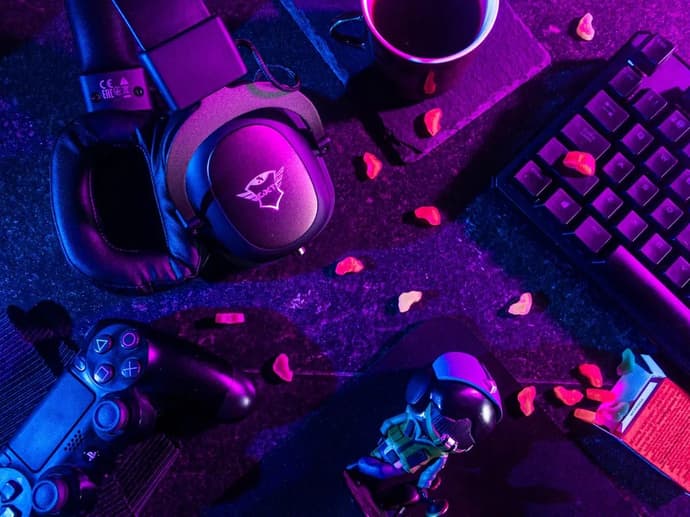
Beskytt identiteten din som spiller: 10 hint og tips

In today’s gaming era, it is important to protect your identity as much as it is important to protect your in-game assets. With threats such as account takeover, identity theft, and others it is important to be proactive in the protection of your personal information. For instance, Layer 7 Distributed Denial-of-Service (DDoS) attacks were nearly twice as frequent year on year, up 94%. The months of June and August in 2023, as well as May 2024, accounted for more than 25 billion attacks each. Whether you are a casual gamer or a competitive esports professional, these tips will go a long way in helping you stay safe
1. Use a Unique Gamer Tag and Profile Information
One of the simplest yet most effective ways to protect your identity is by choosing a unique gamer tag that doesn't include personal information. Avoid using your real name, birth year, or any details that could be traced back to you. Instead, opt for a creative alias that keeps your real identity anonymous.
Similarly, be cautious about the details you share in your gaming profile. Avoid linking personal social media accounts, email addresses, or any information that could lead someone to your real-life identity.
2. Use a VPN
Using a VPN (Virtual Private Network) while gaming can greatly improve your online security when gaming. A VPN works by establishing an encrypted connection to the Internet, thus making it harder for hackers, cyber stalkers, and even your Internet Service Provider (ISP) to determine what you are doing on the Internet.
Not only can it help other players or attackers know your real world location but it can also help protect your identity with VPN. Also, it is harder for a malicious player to know your location and launch a physical attack on you in the real world.
3. Enable 2FA
Most gaming platforms now offer two-factor authentication (2FA), which adds an extra layer of security to your account. Using an additional verification step like a one-time PINcode sent to your phone or email, 2FA significantly reduces the risk of unauthorized access to your gaming account. Always enable 2FA on platforms like Steam, PlayStation Network, Xbox Live, and any other online services you use.
4. Be Cautious About Voice and Video Chats
While voice and video chats enhance the gaming experience, they can also expose your identity. Many gamers unknowingly reveal personal information through conversations, such as their location, school, or workplace.
- Use a voice changer if you want to add an extra layer of anonymity.
- Avoid displaying your real face on webcam-based gaming platforms unless necessary.
- Never discuss personal details during live streams or public voice chats.
5. Secure Your Accounts
A weak password makes it easy for hackers to access your gaming accounts. Always use complex passwords that include a mix of uppercase and lowercase letters, numbers, and symbols.
Consider using a password manager to keep track of different passwords for various gaming platforms. Never reuse passwords across multiple accounts, as this increases the risk of a security breach.
6. Avoid Sharing Personal Information
Many gamers participate in forums, Discord servers, and social media groups related to their favorite games. While these communities can be great for networking, they also pose a security risk.
- Never share your real name, address, or phone number in public forums.
- Be wary of phishing attempts disguised as giveaways or promotions.
- If someone asks for personal information, report and block them.
7. In-Game Purchases and Transactions
Gaming scams are rampant, with cybercriminals targeting players through fake giveaways, phishing links, and fraudulent in-game marketplaces. If you frequently buy or trade in-game items, follow these precautions:
- Only make transactions on official gaming platforms or reputable third-party sites.
- Avoid clicking on suspicious links promising free skins, currency, or items.
- Never share your payment details with strangers or third-party sites.
8. Protect Streaming and Content Creation Identity
If you are a streamer or content creator, maintaining anonymity can be challenging. While growing an audience requires some level of engagement, you should still set boundaries to protect your identity.
- Use a pseudonym instead of your real name.
- Keep personal details like your address, workplace, and family members private.
- Set up a separate email address for gaming-related inquiries.
- Be cautious when sharing your location, especially during live streams.
9. Keep Your Devices Secure
Your gaming device, whether a PC, console, or mobile phone, can be a gateway for hackers if not properly secured.
- Always keep your system updated with the latest security patches.
- Install reliable antivirus software to prevent malware attacks.
- Avoid downloading mods, cheats, or third-party software from unverified sources.
10. Social Engineering Tactics
Hackers and scammers often use psychological manipulation to trick gamers into revealing personal information. These social engineering tactics include phishing emails disguised as official gaming messages or even fake friend requests from strangers looking to gain your trust. Always verify the legitimacy of messages before clicking links or sharing information. If something seems suspicious, report it to the appropriate gaming platform.
Conclusion
Gaming can be fun and safe but there are risks if you do not understand the importance of protecting your identity. With these security measures, you will be less vulnerable to threats and can navigate the web anonymously. So, stay safe, stay protected, and stay informed while gaming.

Elen Stelmakh er en kreativ person som er opptatt av å fremme spillkulturen gjennom artikler og visuell design. Som heltidsansatt EGamersWorld-forfatter og designer for et spillnettsted skaper Elen ikke bare innhold, men tilfører det også energi og kreativitet.
 Hytale: Ryggsekkoppskrift og veiledningHer er guiden din til hvordan du lager en ryggsekk i Hytale, slik at du kan utvide beholdningen din for større eventyr i Orbis.
Hytale: Ryggsekkoppskrift og veiledningHer er guiden din til hvordan du lager en ryggsekk i Hytale, slik at du kan utvide beholdningen din for større eventyr i Orbis. Roblox Anime Guardians Koder februar 2026Oppdag alle fungerende Roblox Anime Guardians-koder. Løs inn gratis Mystic Coins, Trait Rerolls, Artefakter og belønninger.
Roblox Anime Guardians Koder februar 2026Oppdag alle fungerende Roblox Anime Guardians-koder. Løs inn gratis Mystic Coins, Trait Rerolls, Artefakter og belønninger. Ikke-britiske nettkasinoer: Spill, formater og hva spillere kan forventeNettkasinoer som opererer utenfor det britiske rammeverket for pengespill, tiltrekker seg oppmerksomhet på grunn av forskjeller i lisensmodeller, spillporteføljer og...
Ikke-britiske nettkasinoer: Spill, formater og hva spillere kan forventeNettkasinoer som opererer utenfor det britiske rammeverket for pengespill, tiltrekker seg oppmerksomhet på grunn av forskjeller i lisensmodeller, spillporteføljer og... Bitcoin-kasinoer og kryptospillplattformer for britiske spillereKryptobaserte spillplattformer har blitt et merkbart segment av det globale markedet for nettkasinoer.
Bitcoin-kasinoer og kryptospillplattformer for britiske spillereKryptobaserte spillplattformer har blitt et merkbart segment av det globale markedet for nettkasinoer.





